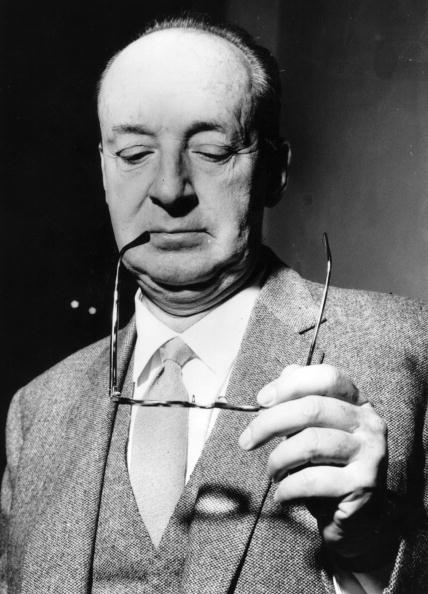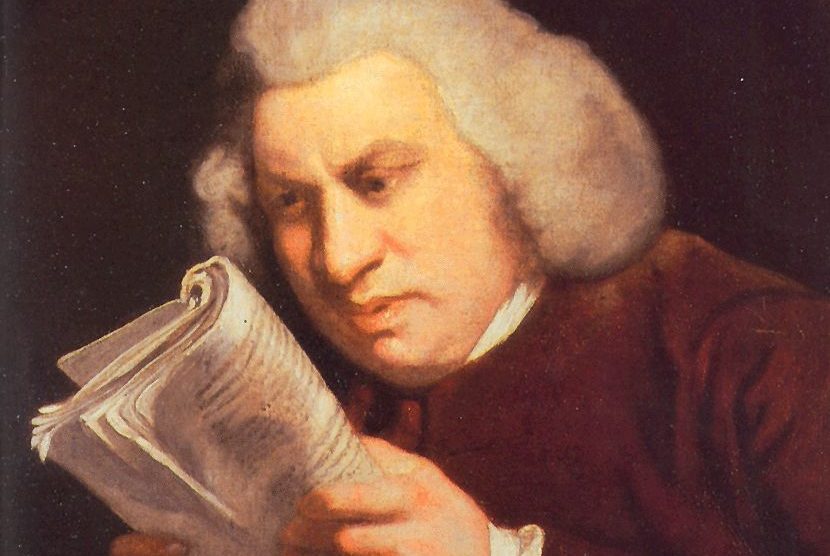How to use a thesaurus to actually improve your writing

- Many writers and teachers suggest you shouldn’t use a thesaurus when writing.
- When misused, a thesaurus can make writing sound flabby and over-stuffed.
- To improve your writing, use a thesaurus to help find and maintain the cadence of your sentence.
If you’ve spent any time trying to learn the craft of writing, you’ve no doubt heard your share of myths, opinions, and prejudices gussied up as hard-and-fast rules. Things like: You should write every day. Only write about what you know. Bad grammar is a sign of an unintelligent person. You must know the rules to break them. And never, ever start a sentence with a conjunction.
One such “rule” that has always baffled me is the prohibition against using a thesaurus to write. I’ve heard from fellow writers, English teachers, and friends who only scratch out the occasional email or tweet. But no one has expressed it as fervently as Stephen King did in his book On Writing:
“[T]hrow your thesaurus into the wastebasket. The only things creepier than a thesaurus are those little paperbacks college students too lazy to read the assigned novels buy around exam time. Any word you have to hunt for in a thesaurus is the wrong word. There are no exceptions to this rule.”
All respect to King, but that is nonsense — also bunkum, hooey, hogwash, and poppycock.
A thesaurus is no different than any other reference book. It’s a treasure trove of information; words cataloged with a librarian’s exactness to help writers compose the best phrase to express their ideas. In fact, the word thesaurus comes from the Greek thēsauros, meaning “a treasury or storehouse.” But like any treasure, the value we derive from it doesn’t come from squandering it. It comes from using it wisely.
How not to use a thesaurus
When people rail against the thesaurus, they are often lecturing against a specific misuse — that being, looking up a 10-dollar Latinism when dime-store English would suffice. This misuse is typical of writers fearful that an everyday word isn’t sophisticated enough to impress. In a bid to sound more educated, such writers describe apartments as luxuriant when luxurious is the better choice or claim a new therapy will “bring a cessation to the smoking habit” instead of simply “helping smokers quit.”
Fair enough. A thesaurus can be a box-and-stick trap for the unattentive writer, and I imagine most writers, myself included, have sprung that trap after being enticed by the bait of a big, fancy word. But carelessness doesn’t demand chucking your thesaurus into the wastebasket or, more likely, deleting the bookmark from your toolbar. The advice could be refashioned as a simple warning to choose wisely among a thesaurus’s offerings and cross-reference them with a dictionary.
As Steven Pinker notes in The Sense of Style: “I write with a thesaurus, mindful of the advice I once read in a bicycle repair manual on how to squeeze a dent out of a rim with Vise-Grip pliers: ‘Do not get carried away with the destructive potential of this tool.’”
A case of synonymomania
Ironically, another fear driving writers toward thesaurus misuse is one more writing myth passed around as gospel: to never use the same word twice in a sentence, paragraph, and sometimes page. (The length varies depending on who’s doling out the advice.)
H.W. Fowler sarcastically called this the rule of “elegant variation.” Theodore Bernstein referred to it as “monologophobia,” the fear of repeating the same word, which can in turn lead to a chronic case of “synonymomania,” or the compulsion to “call a spade successively a garden implement.” Whatever the label, this rule sends writers rushing to a thesaurus to needlessly find a synonym — any synonym! — to avoid sinful repetition.
“But mechanical substitution of synonyms may make a bad situation worse,” Bernstein writes in The Careful Writer. “It is particularly objectionable if the synonym is the one that falls strangely on the ear or eye: calling a snowfall a descent, calling gold the yellow metal, calling charcoal the ancient black substance. Repetition of the word is better than these strained synonyms. Often a pronoun is a good remedy, and sometimes no word at all is required.”
Pinker backs up Fowler and Berstein with psycholinguistic support. He notes that when two different words are used, readers will typically assume they’re referring to two different things. Using the same word or a pronoun helps the reader keep track of a paragraph’s actors and actions without tedium or bewildered backtracking.
That’s not to say that all repetition is advisable, of course. Pinker also points out that if the repetition trips up the reader, sounds monotonous, or potentially misleads, then variation becomes necessary. And this clarification takes us to the first way to use a thesaurus properly: rhythm.

How to use a thesaurus to improve your writing
Novelist Martin Amis reaches for his thesaurus when he finds a word has thrown off his rhythm. Perhaps it has created unintentional alliteration, or the syllable count has led a phrase to stop short of pleasing, or a prefix-suffix pairing has bonked together with an audible thud. Whatever the case, Amis will use a thesaurus to find a similar word that helps the sentence “maintain its rhythmical integrity.”
One of his guides for this strategy is novelist Vladimir Nabokov, a writer praised for his melodic, if sometimes disturbing, prose. As Amis shared in an interview, Nabokov’s novel Invitation to a Beheading was originally titled Invitation to an Execution. But the repetition of the suffixes sounded ugly to Nabokov, so he selected a synonym that retained the meaning while being more lyrical.
“It takes a long time, sometimes, to get your sentence right, rhythmically, and to clear the main words in it from misuse,” Amis said. “And all you’re winning is the respect of other serious writers. But I think that any amount of effort is worth it for that.”
A thesaurus can also serve as a phrase tuner, a place where a writer can explore different words to find the one that strikes the perfect chord. For example, above I could have written that prefix-suffix pairings hit, slammed, crashed, knocked, smashed, walloped, or hammered into each other. A thesaurus offers no shortage of options, each one ringing out with its own connotations and associations. I chose bonked because it embodied the clumsy and accidental vibe I was going for.
“The best words not only pinpoint an idea better than any alternative but echo it in their sound and articulation.”
Steven PInker
And despite my jab at 10-dollar words earlier, there are times when a writer will want to peruse a thesaurus for a word atypical of workaday English. Courtesy of Pinker, here’s an example from Margalit Fox’s obituary of fellow journalist Mike McGrady: “Naked Came the Stranger was written by 25 Newsday journalists in an era when newsrooms were arguably more relaxed and inarguably more bibulous.”
Straight from the Latin, bibulous means “fond of alcohol,” and again, any thesaurus will offer up plenty of alternatives: drunk, tipsy, soused, inebriated, and pickled for example. Pinker suggests bibulous is the best choice because of its playfulness. Those repetitive Bs not only sound fun, but they ring out with the party-minded phonemes of babbling and bubbly.
Note how the way Fox incorporated the word into the sentence doesn’t suggest she was trying to show off or appease monologophobia. Read it aloud, and feel how it enlivens her prose with a surprise ending that perfectly captures the idea, tone, and rhythm of the scene. And while she may have had bibulous on the top of her mind when writing, she just as easily could have discovered it in her thesaurus.
Finding your own rhythm
Of course, a different reader might feel Fox’s use of bibulous to be show-offy. Someone out there may prefer the title Invitation to an Execution. And I’m sure many readers will take issue with the choices I made throughout this article. As with any craft, writing is as much about discovering your own rhythm and voice as it is following a litany of paint-by-number rules.
A final example for the road: In On Writing Well, William Zinsser shares a time he wrote a sentence his editor disliked. It was, “They don’t look like cities that get visited by many visiting artists,” and his editor wanted to revise the sentence to remove the second “visiting” (a case of monologophobia, perhaps?). But Zinsser stood firm. He wanted the cadence of that repetition. After a prolonged argument, his editor relented.
“If you allow your distinctiveness to be edited out, you will lose one of your main virtues,” Zinsser writes of the experience.
Used properly, a thesaurus can help you find that distinctiveness — especially when paired with a top-shelf dictionary. Used improperly, it can mask your distinctiveness behind the words that you think others want to hear. Either way, a proscription against such a handy writing tool is silly. Rather than throw yours in the wastebasket, take the time to learn how to use it and actually improve your writing.
Learn more on Big Think+
With a diverse library of lessons from the world’s biggest thinkers, Big Think+ helps businesses get smarter, faster. To access Big Think+ for your organization, request a demo.





